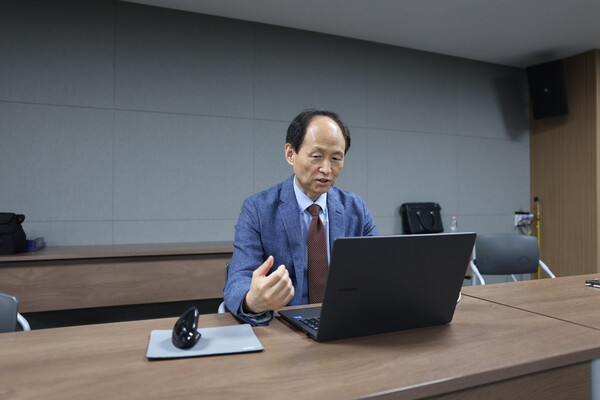Korea’s top pharmaceutical lobby wants to promote AI-driven drug discovery by sharing the profits with the public.
At a press briefing Wednesday, the Korea Pharmaceutical and Bio-Pharma Manufacturers Association (KPBMA) proposed a bold new model: let companies train artificial intelligence on anonymized national health data but tie future profits from AI-developed tools to public payouts.
Consumers should get a cut if Korea’s biodata helps fuel drug discovery.
“We’re sitting on a national asset,” said Kim Hwa-jong, KPBMA’s Convergence AI Institute for Drug Discovery director, comparing Korean health data to Hong Kong’s subway-linked real estate empire.
In the 1980s, the city-state began auctioning development rights around train stations in return for a share of future profits. That approach pulled inmore than $2 billion in 2024 alone.
Kim proposed the model and said Korea has “something just as valuable” and is “barely using it.”

The initiative, dubbed a “national drug dividend, ” reframes biodata not as a product to be sold upfront but as a “public good,” a renewable asset that grows in value as AI tools mature.
Under the plan, pharmaceutical companies wouldn’t access raw patient data. Their algorithms would train inside hospital or government systems using federated learning, which keeps data in place while allowing models to learn from it. Only the trained parameters, stripped of names, dates, and other identifiers, would leave the system.
Google has used the same technique since 2017 to improve smartphone keyboards without reading private messages. Kim believes encrypting complete datasets is like “locking down an entire building,” while federated learning means “you only need to secure the drawer.”
Instead of selling data upfront, the model lets companies build AI first and share profits only if the tools succeed. Kim says this lowers risk, protects data sovereignty, and avoids assigning value too early to assets whose potential may take time to surface.
KPBMA argues that most countries have it backward by treating health data as a product to be sold. A better approach, it says, is to treat that data as a shared resource. Companies would build AI models first, and profits would only be shared through dividends or licensing if those tools prove valuable.
Kim warned that selling raw data too early is like “selling a lottery ticket before you know if it’s a winner,” a move that often leads to public resentment when people feel shortchanged after their data powers billion-dollar breakthroughs.
He pointed to early-stage companies like 23andMe, which offered one-time payments for genetic samples. He said those models “don’t scale” because they misjudge future value and alienate participants when the payoff comes later and elsewhere.
The group’s multistage plan calls for three steps: building trusted training sandboxes inside hospitals and public institutions, setting a legal framework for AI profit-sharing, and passing laws to shield hospitals from liability while standardizing consent protocols.
Several use cases were outlined, including target validation, biomarker discovery, personalized treatment through pharmacogenomics, and predicting adverse events in post-marketing surveillance.
KPBMA also addressed privacy concerns. Critics have warned that even federated learning could, in theory, be reverse-engineered. However, Kim called the risk minimal, likening it to “trying to guess someone’s face from their shadow.” Theoretically possible, he said, but “far less dangerous” than sharing raw data.
Kim noted that the ultimate goal is to develop a model that can scale globally. If Korea can prove its approach's safety, equity, and utility at home, KPBMA believes the country could license the system abroad.
The group seeks legislative sponsors and plans to hold additional policy briefings with the Ministry of Health and Welfare and the National Assembly in the year's second half
Related articles
- K-GHC, Gavi seek to expand Korea’s global vaccine role
- Biopharma industry calls on new government for ‘expanded R&D support’
- Drug export rose, but medical device shipment dropped in 1st quarter
- 'Korea’s IPO-driven biotech sector offers prime entry point for global VCs'
- KoreaBIO urges next president to propel biotech with 10-point reform plan
- Government opens 2.61 million cancer data to public for a research contest
- KPBMA sets aggressive 2030 goals, as industry group marks 80th anniversary

